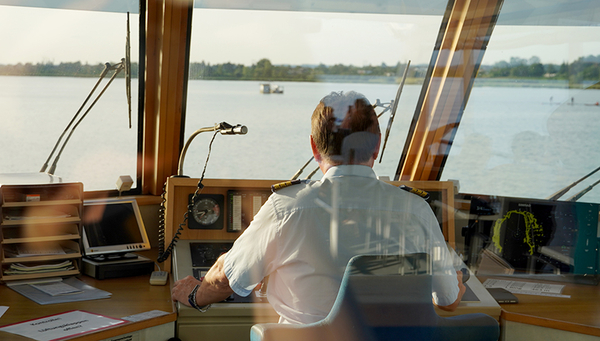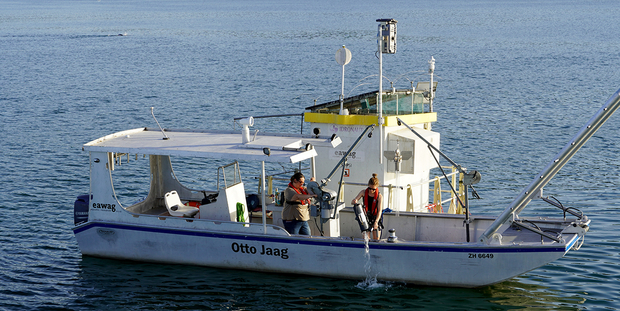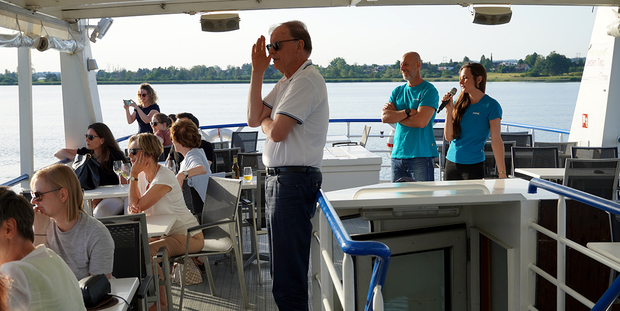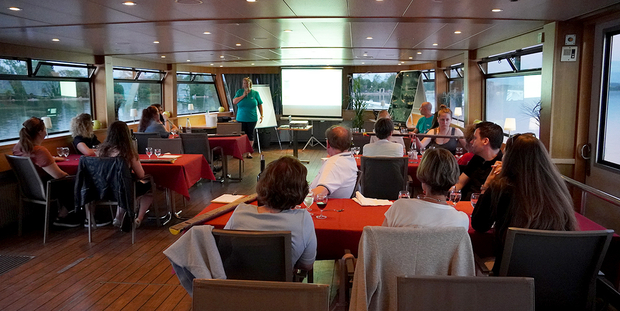News Detail
Experience Eawag research on Lake Greifensee
June 23, 2022 |
On a perfect summer evening, the boat “Stadt Uster” set sail last Friday. While the passengers were sipping their aperitifs, the boat headed first for the Eawag research platform anchored off the small town of Greifensee. There, the researchers demonstrated the methods used to monitor bodies of water. While traditional methods are costly and therefore only provide data with low temporal and spatial resolution, the underwater microscope “Aquascope” anchored to the platform, for example, functions fully automatically and delivers real-time information on the plankton in Lake Greifensee.
The fascinating world of plankton
While the boat makes its round on the lake and the guests enjoyed the appetisers, Francesco Pomati, group leader in the Aquatic Ecology Department at Eawag, and Ewa Merz, a PhD student in the same research group, explained to them why lakes need to be monitored, how the underwater camera recordings are evaluated and how conclusions can be drawn about impending toxic algal blooms. At the same time, the researchers also demonstrated to the guests how fascinating the world of plankton is. After all, the small dots in the water samples that the researchers have brought with them turn out to be multifaceted creatures of great beauty under the microscope.
A history book at the bottom of the lake
After the main course, the participants could also take a look underground. Nathalie Dubois, group leader in Eawag’s Surface Waters Department, had brought sediment cores from the bottom of Lake Greifensee. These are the history books of our environment, the researcher explained. Year after year, the individual sediment layers record what has happened in the lake and its catchment area. The samples from Lake Greifensee, for example, reveal a major flood event in 1813, but also the over-fertilisation that began in the 1930s.
Finally, dessert and a wonderful sunset rounded off a successful and informative evening. On 16 September, the presentation boat will set sail once again to present exciting aspects of Eawag research in Lake Greifensee.
Cover picture: The Lake Greifensee boat approaches the Eawag research platform. (Photo: Claudia Carle, Eawag)




